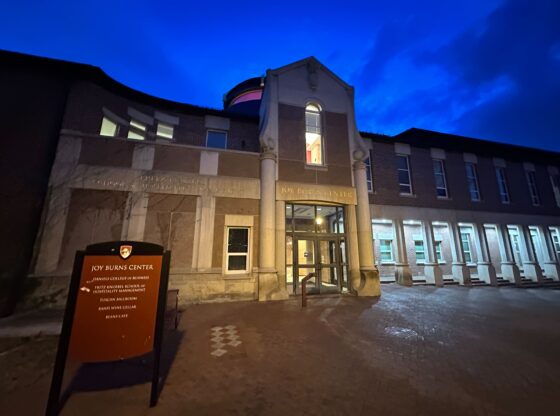Welcome back to “The Unify Brief,” where we track the latest developments shaping the nation. Here’s what you need to know this week.
House GOP passes Trump’s budget plan
On April 10, the U.S. House of Representatives narrowly passed a Republican budget resolution in a 216-214 vote, paving the way for President Trump’s legislative agenda. The resolution was adopted after Republican leaders worked to convince GOP holdouts who wanted deeper spending cuts to back it.
The budget includes provisions for border security, defense and extending expiring tax cuts. Despite the passage, the resolution faced opposition from conservatives who sought deeper spending cuts. However, after receiving assurances from leadership that the Senate would pursue at least $1.5 trillion in savings, about a dozen conservatives flipped their opposition.
The next steps involve reconciling differences between the House and Senate versions of the budget resolution to advance Trump’s agenda.
Local: House Republicans approve framework for Trump’s big bill after intense wrangling wins over GOP holdouts (9News)
National: House GOP adopts Trump budget plan after conservatives fold (CBS)
What other college campuses have to say: As of Saturday, April 12, no college campuses have reported on this development.
International students get visas revoked
Colleges across the United States are experiencing a concerning trend — international students’ visas, particularly F-1 visas, are being unexpectedly revoked by federal authorities. Prestigious institutions such as Harvard, USC and UCLA have observed instances where students lost their legal residency status without prior notice.
This month, the Trump administration revoked the visas of 10 international students from Colorado’s major public universities — six from Colorado State University (CSU) and four from the University of Colorado campuses in Boulder and Colorado Springs. This action aligns with a broader immigration enforcement initiative targeting college students with pro-Palestinian views, though specific details about the students’ political affiliations have not been confirmed.
Mahmoud Khalil, a Palestinian-born graduate student and activist at Columbia University, faced deportation despite lawful actions, with the government citing national interests and concerns about antisemitic activity.
This development has raised significant concerns among university leaders, who fear that such abrupt visa revocations and increased surveillance may deter international students from studying in the U.S., leading to confusion and anxiety within academic communities.
Local: Number of Colorado student visas revoked by Trump administration more than doubles (The Denver Post)
National: Federal officials are quietly terminating the legal residency of some international college students (AP News)
International: Why has Trump revoked hundreds of international student visas? (BBC)
What other college campuses have to say: USC offers legal resources for international students as visas get revoked nationwide (Daily Trojan)
Trump’s retribution campaign
On April 9, President Trump signed executive orders targeting two former administration officials, Miles Taylor and Christopher Krebs, who had publicly criticized him.
Taylor, a former Department of Homeland Security (DHS) official, gained attention for his 2018 anonymous op-ed and a subsequent book detailing internal White House dissent. Krebs, the former director of the Cybersecurity and Infrastructure Security Agency (CISA), was dismissed in 2020 after confirming the security of the 2020 election and debunking misinformation about election fraud.
These executive orders revoked the security clearances of both Taylor and Krebs, and initiated investigations into their actions during their tenures. Trump accused Taylor of treason, saying, “I think he’s guilty of treason… We’ll find out.” The administration provided no evidence to back the claim. As for Krebs, Trump continued to promote claims of election fraud, saying the election was “very corrupt.”
These actions are viewed as part of a broader pattern of retribution against perceived political adversaries.
Local: Trump signs orders targeting two ex-officials who criticized him (The Denver Gazette)
National: Trump targets two first-term critics, a law firm and the American Bar Association (CNN)
What other college campuses have to say: NU Pritzker Faculty discuss the impact of President Trump’s executive orders on the legal system (The Daily Northwestern)
Take Action:
At DU:
- Attend workshops to expand your understanding. This week’s events include:
- US Policy Pop-Up Series: Executive Orders and Challenges to Them on Wednesday, April 16 from 12-1:30 p.m. – Check the Crimson Connect page for more details.
- Support DU initiatives and departments.
- Center for Immigration Policy & Research (CIPR)
- Reach out to departments with any questions or if you need resources.
- DU International Student & Scholar Services (ISSS)







